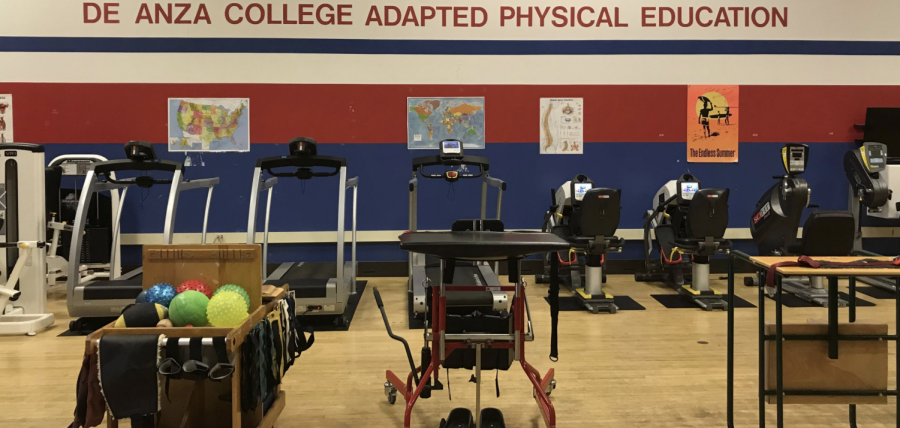Disabled students train virtually in Adapted Physical Education courses
photo courtesy of De Anza College Adapted PE
On-campus exercise facility for De Anza College’s adapted physical education department.
Despite the struggles of engaging in online school, students with disabilities are still exercising through De Anza College’s Adapted Physical Education program.
To ensure that De Anza students with disabilities could also participate in physical education, the Disability Support Programs and Services Division began offering APE courses. During the pandemic, the program transitioned online.
Casey Regehr, adapted physical education instructor, said the transition to educating virtually has been difficult.
“With such diverse and varying levels of ability between our students, it’s been challenging to meet the needs of each individual student the way we could if we were on campus,” Regehr said.
APE instructors have struggled with students who cannot access efficient technology at home. Cindy Lee, APE specialist, said that some students didn’t have stable internet or computers that supported Zoom.
But after two quarters of online learning, instructors and students are starting to adjust.
“(In Zoom), they can pin the instructor, or if they want to see other students in the class they can go into the gallery view,” said Jennifer Taether, APE assistant. “It’s really helped them.”
Students have also found ways to exercise without professional equipment.
“If they don’t have equipment with them, we offer suggestions that people have at home, like cans or water bottles,” said Lee.
The online format has also allowed students to keep up with exercises while away from home.
“Some students have been able to do exercise in class while taking trips to Vegas,” Raether said. “One student right now is in Seattle for a couple of days, and they’re still able to check in.”
Since APE courses are repeatable, many students have stayed in the program for 10 to 15 years.
“There is a huge sense of community within our program,” said Raether. “Students, faculty and staff have all developed really special relationships over the years.”
The department is offering nine courses for spring quarter.



